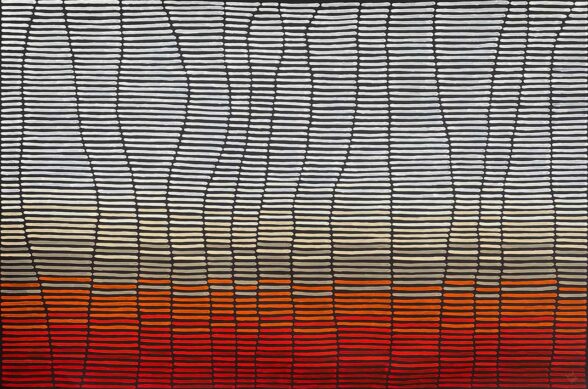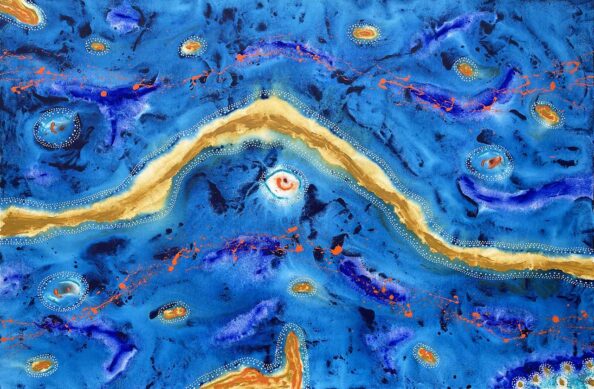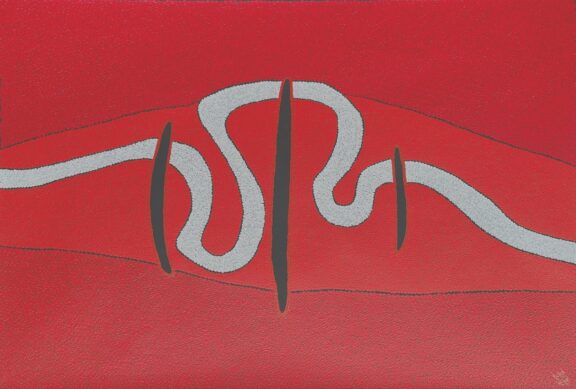Kurun Warun Paintings
Kurun Warun - born 1966, of Gunditjmara descent from Victoria, musician & artist, paints living culture & elements of Aboriginal stories
Kurun Warun is an artist of Gunditjmara descent from the south-west of Victoria. He had his first exhibition as an eight year old, but it was as an adult that he returned to the serious practice of his art. Kurun Warun has developed a very direct style using bold contrasting colours to tell stories of the Aboriginal experience in Australia.
Although it was later in life that he really developed his art practice, Kurun Warun was also related through his extended family to artist Lin Onus and musician Archie Roach. Kurun says “Archie Roach’s uncle was my grandfather. Mum used to babysit Archie.” Archie Roach’s great songs of dispossession were the stories of Aboriginal people at Framlingham. Kurun Warun’s mother came from Framlingham mission near Warnambool, on the south-west coast of Victoria. Kurun Warun can also claim fifth generation descent from Truganini, famously called the last Tasmanian, who had come from Tasmania in 1838 to Port Phillip. Kurun Warun’s great grandmother was Truganini’s granddaughter.
The location of Framlingham along the Hopkins River had started as an Anglican mission in 1861 and operated as an Aboriginal reserve until 1916. Framlingham was home to Girai Wurrung and Djargurd Wurrung people from the regions around Warnambool. These people had lived around the Western District Lakes for thousands of years, leaving a history of archaeological sites including fish traps, rock scatters, middens and burial sites. The Gunditjmara people from further north from Portland and Lake Condah were also forcibly moved to Framlingham but fought to settle closer to their own lands. After the closure of Framlingham in 1916 some of the residents remained in the community and were finally granted ownership in 1971 of the 237 hectares of the land in 1971. Today the only buildings that remain from Framlingham are the old church and one hut that date from about 1920.
Kurun Warun’s use of colour reflects the primary resources of indigenous people – red, black and white are used to convey cultural body markings and structures found in nature. Kurun Warun first exhibited in 1974 in Melbourne alongside his mother, who had trained as an artist. When he returned to art as an adult he began exhibiting in 2000, with exhibitions in Noosa Regional Gallery, Parliament House in Brisbane, in South Korea and Sydney.





